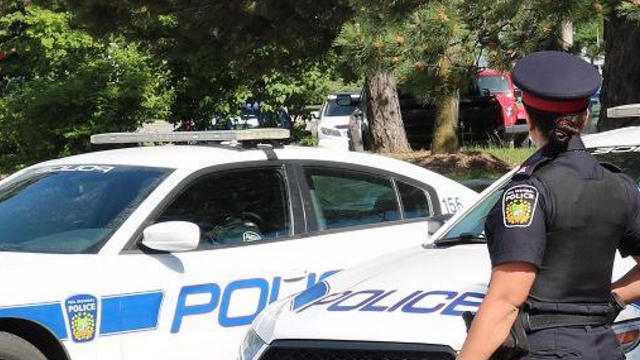Mississauga Lawyer, Martin Schulz, Convicted of Serious Offence Will Not Lose License
Published October 12, 2016 at 2:53 am

Ontario’s Law Society Tribunal has decided not to suspend the legal license of a Mississauga family lawyer convicted of a child pornography offence, according to a recent Canadian Press article.
The CP reports that the province’s Law Society Tribunal dismissed an application from the Law Society of Upper Canada that argued that Martin Schulz posed a risk to the public based on his recent conviction.
The tribunal disagreed with the society’s position, saying that Schulz is unlikely to reoffend and has “abided by all conditions imposed upon him since his arrest in 2013, and does not post a risk to the public.”
That said, the tribunal has imposed some conditions.
The CP reports that the tribunal has said that the lawyer cannot represent anyone under the age of 18 or be alone with young people in connection with his practice.
“The Lawyer has no history of any offence involving physical contact, and no other criminal history,” the tribunal wrote in its decision handed down last month, as reported by the Canadian Press. “We find no reasonable grounds for believing that a significant risk of harm to members of the public exists.”
Although some people might find that reasoning concerning, the tribunal does have to carefully evaluate the potential for harm should a licence not be suspended.
“Section 49.27(2) of the Act sets a bar that must be met before the tribunal can make an interlocutory order suspending a lawyer’s licence. That being said, according to the tribunal, ‘[Section] 49.27(2) does not set a high bar,’ says Rhyan Ahmed, barrister and solicitor (partner) with the Mississauga-based KPA Lawyers Professional Corporation.
“In determining whether the bar has been met, two primary issues are explored by the tribunal in these types of cases. One, whether there are reasonable grounds for believing that there is a significant risk of harm to members of the public or to the administration of justice if an interlocutory order is not made and two, whether making such an order is likely to reduce the risk of harm,” Ahmed says.
“Although the tribunal saw fit to restrict the practice of the lawyer rather than suspend his license, the tribunal nonetheless recognized the seriousness of Mr. Schulz’s conduct and stated that, ‘The gravity of the lawyer’s offence amounts to an implicit breach of public trust and goes to the root of the lawyer’s fitness to practise law’ and ‘he has been convicted of a crime that victimizes the most vulnerable members of our society.’
According to the article, Schulz’s legal problems began in November 2013 when he was arrested and charged with two counts of possession of child pornography and one count of making child pornography available.
The CP reports that the lawyer was released on bail and barred from engaging in unsupervised contact with his children and going online for non-business purposes.
In March, Schulz was convicted of one count of possession. The Crown withdrew the other charges.
The CP article says that, during an interview with a law society investigator, Schulz admitted to viewing images of young teenage girls (typically about 14-years-old) semi-regularly over a period of a few years.
The tribunal said that psychological assessments revealed Schulz was at low-risk of reoffending and genuinely remorseful.
It’s also important to consider that any suspension imposed might not have been permanent and that Schulz’s current ability to practice law within a restricted framework could change.
“It’s important to note that the proposed suspension would have been an interlocutory suspension, and the key word is interlocutory,” says Ahmed. “That’s a legal term that typically refers to decisions and judgments given provisionally during the course of a broader legal proceeding. In other words, the lawyer could later be subject to further disciplinary action, and the tribunal acknowledged that, ‘a great deal of time could pass until a [ultimate] penalty is imposed.’
While Schulz can still practice, other Mississauga lawyers have received suspensions in the past.
“Although honesty in billing and court attendance may seem trivial in comparison to a conviction of possessing child pornography, the primary consideration is the protection of the public,” Ahmed says. “Overbilling a public institution and failing to attend court poses a direct risk of harm to the public purse and the interests of individual clients. In her case, the tribunal found that simply restricting the lawyer’s practise would be insufficient and stated that, ‘where one cannot count on integrity and trustworthiness, the tribunal cannot ordinarily be confident that restrictions will be effective.’
As of now, there is no indication that Schulz has tried to engage in sexual activity with young teens in real life.
Schulz is currently still under investigation by the law society. He was also sentenced to 45 days in jail (which he will serve intermittently) back in May.
INsauga's Editorial Standards and Policies









